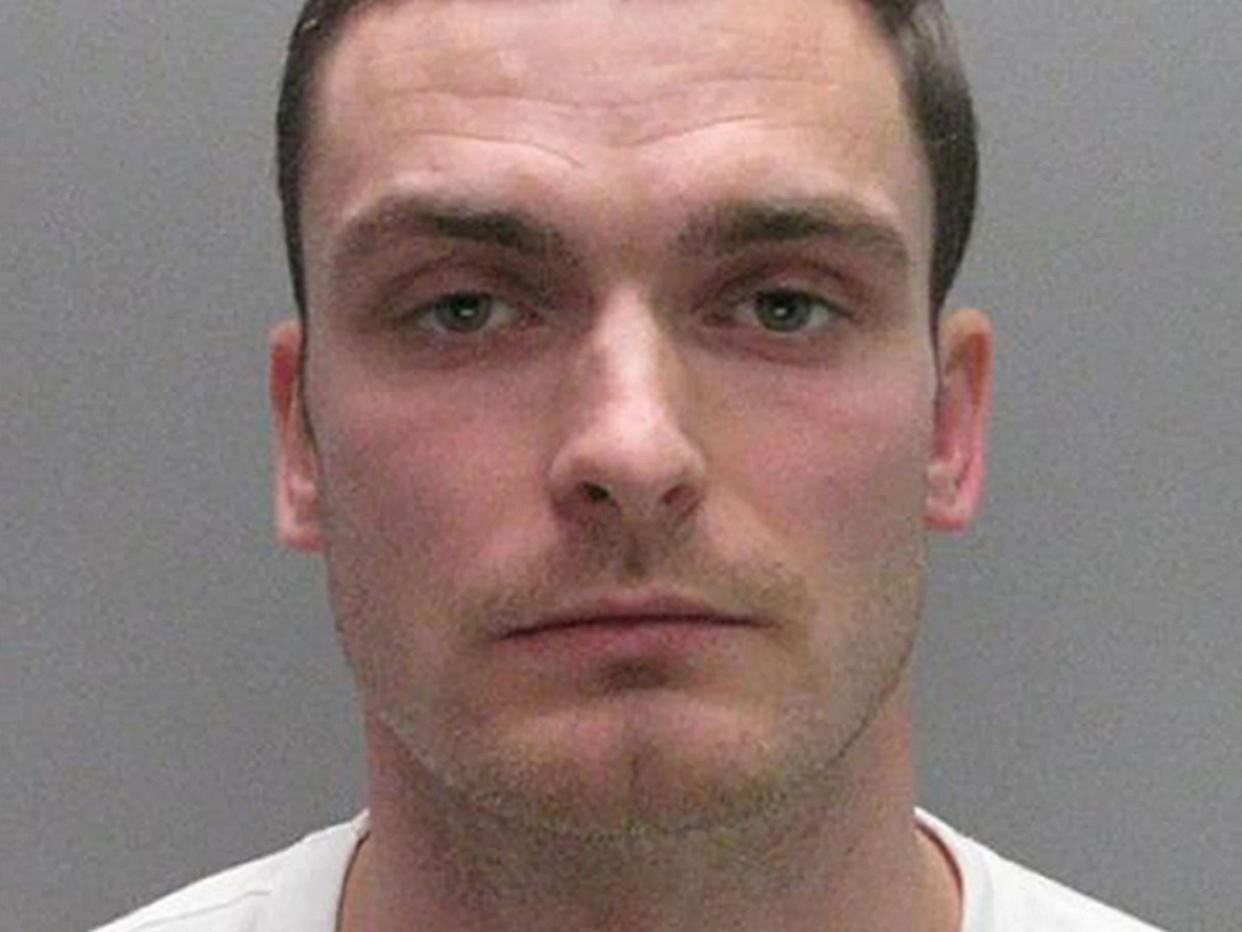Adam Johnson's prison comments were predictably abhorrent – but so was the media's reporting of them

I found myself this week imagining what it must feel like to be Adam Johnson’s victim. In a newly leaked prison video, the footballer is seen laughing that he wishes he’d raped his 15-year-old victim, given he’d been convicted anyway for sexual activity with an underage girl. The sentiment is expressed so casually: the only downside to sexual violence is punishment. If you’re going to get in trouble anyway, then you might as well make the most of it.
Watching him speak, you get the sense that he barely recognises his victim as fully human. She’s a lump of meat. An object. Her suffering is relevant only in so far as a subject of curiosity and amusement. I wonder what must have gone through his head as he listened to the teenager speak at his trial. Despite being legally entitled to anonymity, she received rape threats and abusive messages online. She told the court that she “absolutely hated” the footballer because “he told everyone he was innocent and he made people call me a liar”.
It’s likely this is the worst thing that has ever happened to that 15-year-old girl. It will have disrupted her life at every possible level. Not only the crime itself, but the whole accompanying circus. The threats and the abuse, yes, but also the broader experience of being questioned and judged and scrutinised. The media coverage that invites audiences to conjecture about her behaviour and culpability. As she tries to return to something approximating normality, this development will throw everything off course. Imagine having to watch your abuser saying he wishes he hurt you more than he did. Imagine knowing that video will be viewed by millions of people across the country, and that some of them probably agree.
As sickening and distressing as it must be for the victim, I do think outlets are justified in publishing the footage. It’s important to show the sort of predator that Adam Johnson actually is. And beyond the specific case, I think it provides a useful insight into the mind set of predatory men. Far harder to defend is the specific nature of much of the coverage. The word rape is written in block capitals as if it’s some sort of lurid detail, not a serious and traumatising violent crime. Photos of Johnson’s ex-girlfriend are included for no other reason than she is attractive. Reporting takes the same breathless, excited tone you find in tabloid reports of celebrity affairs.
This is one of a range of approaches to sexual violence adopted by mainstream media outlets. Incidents involving high-profile perpetrators, such as Johnson, are frequently treated as gossip. The audience is invited to follow proceedings as they would a soap opera. Even when celebrities aren’t involved, reporting sometimes adopts a gossipy tone – details of offences are highlighted in order to scandalise and titillate.
Sombre and broader coverage is most common in one specific circumstance: when perpetrators are recent migrants or members of stigmatised groups. In the year spanning 2015-2016, police recorded 23,851 reports of adults being raped. Most of these crimes did not receive national media attention. Cases were more likely to be covered if they reinforce existing narratives about the dangers of immigration.
Sexual violence is recognised as culturally embedded and endemic only when it can be deployed to attack other cultures. When sexual violence is committed by white, British men it’s treated as an isolated aberration or curiosity. As far as Adam Johnson is demonised, it’s as an individual. There’s little consideration of how his status as a wealthy and high profile individual might have enabled his crime. How his contempt for his victim is a product of power dynamics and wider social forces.
If mainstream coverage did begin placing these kinds of incidents in a broader context, journalists would be forced to acknowledge similar dynamics at play within our own industry. Bill O’Reilly has recently been fired from Fox News following a string of sexual harassment allegations, but he’s far from the only media figure to abuse his power in a similar way. I’ve lost count of the number of troubling anecdotes I’ve heard from young journalists working here in the UK.
An industry-wide commitment to taking sexual violence seriously could spearhead a broader cultural transformation. It’s not enough to publish the occasional feminist think piece – every piece of reporting must avoid perpetuating victim blaming and apologist tropes.
Media outlets getting their own houses in order is a vital first step. No wonder crimes like Adam Johnson’s are covered so insensitively when incidents are brushed under the carpet within journalists’ own ranks.

 Yahoo News
Yahoo News 
